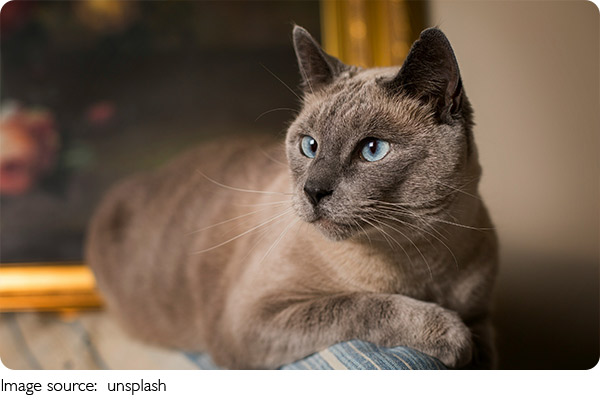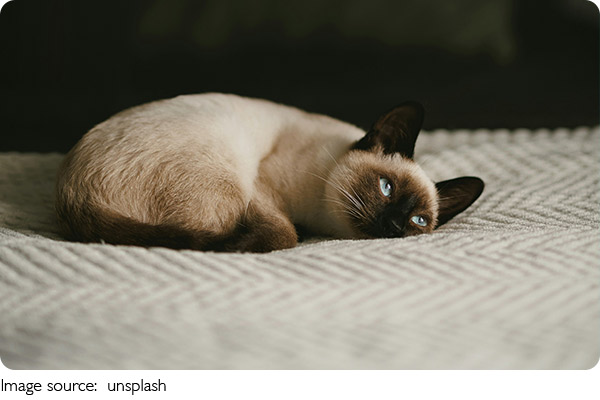Midnight Cat Secrets

When we're just about to crawl into bed, our cat suddenly dashes across the hallway, zooms onto the couch, and launches into what feels like an Olympic gymnastics routine.
Sound familiar? If you've ever wondered why your cat turns into a ninja at night, you're not alone. Let's dive into the mysterious and fascinating world of our cats' nightlife!
Why Are Cats So Active at Night?
While it may seem like cats are nocturnal, they're actually crepuscular—meaning they're most active during dawn and dusk. This behavior comes from their wild ancestors, who hunted small prey during these twilight hours when both predators and prey were on the move.
We might sleep through the night, but to our cats, early morning and late evening are peak adventure times. That's when their inner hunter awakens and the living room suddenly becomes their wild savanna.
The Hunter Instinct Never Sleeps
Even our softest, fluffiest lap cats are born with a hunter's instinct. During the night, that instinct takes over. Cats rely on stealth, patience, and precise movements to catch their prey—whether it's a mouse in the wild or a toy mouse at home.
Those "crazy zoomies" we often witness are not just for fun. They mimic the excitement and adrenaline rush of chasing after something. When we understand this, it becomes clear that our cat's nighttime play isn't random—it's deeply instinctual.
The Power of Their Night Vision
We've all seen it—our cat walking confidently through a dark hallway without bumping into anything. That's because cats have superior night vision. Their eyes are designed to reflect even the tiniest bit of light, thanks to a layer called the tapetum lucidum.
According to Dr. John Bradshaw, a feline behavior expert and author of Cat Sense, cats can see six times better in low light than humans can. So while we see shadows, our cats see shapes, motion, and opportunity.
Nighttime Is Quiet Time—Perfect for Pouncing
Let's face it—nighttime is peaceful. Fewer people, less noise, and calm surroundings. For cats, this low-stimulation environment is perfect for exploring, playing, and stalking their surroundings without interruption.
We may be asleep, but our cat is busy patrolling its territory, checking corners, or silently launching itself at a toy or dust bunny. This behavior gives them mental and physical stimulation—and helps prevent boredom.
How We Can Help Manage Their Nightlife
While it's fun to know our cats are channeling their inner hunter, being woken up by a sprinting feline isn't always ideal. The good news? We can help guide their nighttime habits:
• Interactive Play Before Bed: Spend 15–20 minutes playing with your cat in the evening using toys they can chase. This mimics the hunt and helps them burn off energy.
• Late Dinner Trick: Feeding your cat a small meal before your bedtime can make them sleepy—just like us after a big meal!
• Create a Calm Space: Leave a soft bed, a quiet box, or a cozy blanket in a dark, comfy area. It may encourage rest over action.
The Beauty of the Feline Night
Once we understand our cat's natural rhythm, their nighttime behavior stops being "weird" and starts to make perfect sense. Their instincts, senses, and energy are finely tuned for the hours we often overlook. And while we're dreaming, they're living their most exciting hours.
Let's Talk About Your Cat!
Do your cats suddenly become night explorers when the lights go off? Have you experienced those 3 AM sprints across your bed? Share your story with us—we'd love to hear how your furry friend spends the night!
Cats may seem mysterious after dark, but everything they do is written into their DNA. The more we understand it, the better we can share both our days and nights with them.

Would you like a follow-up article on how to help cats sleep through the night or create the perfect evening routine for them? Let us know!
-
 Simple Art VibeJust 5 Easy Tricks to Make Your Home Look Like an Art Gallery Without Spending Much!
Simple Art VibeJust 5 Easy Tricks to Make Your Home Look Like an Art Gallery Without Spending Much! -
 Social Pressure SurvivalFeeling Drained by Campus Social Life? Here's How I Finally Found Peace and Confidence Without Faking Anything!
Social Pressure SurvivalFeeling Drained by Campus Social Life? Here's How I Finally Found Peace and Confidence Without Faking Anything! -
 Soft Shell FixIs Your Turtle’s Shell Soft? Here’s Why It Happens and How to Help Your Turtle Get Stronger!
Soft Shell FixIs Your Turtle’s Shell Soft? Here’s Why It Happens and How to Help Your Turtle Get Stronger!